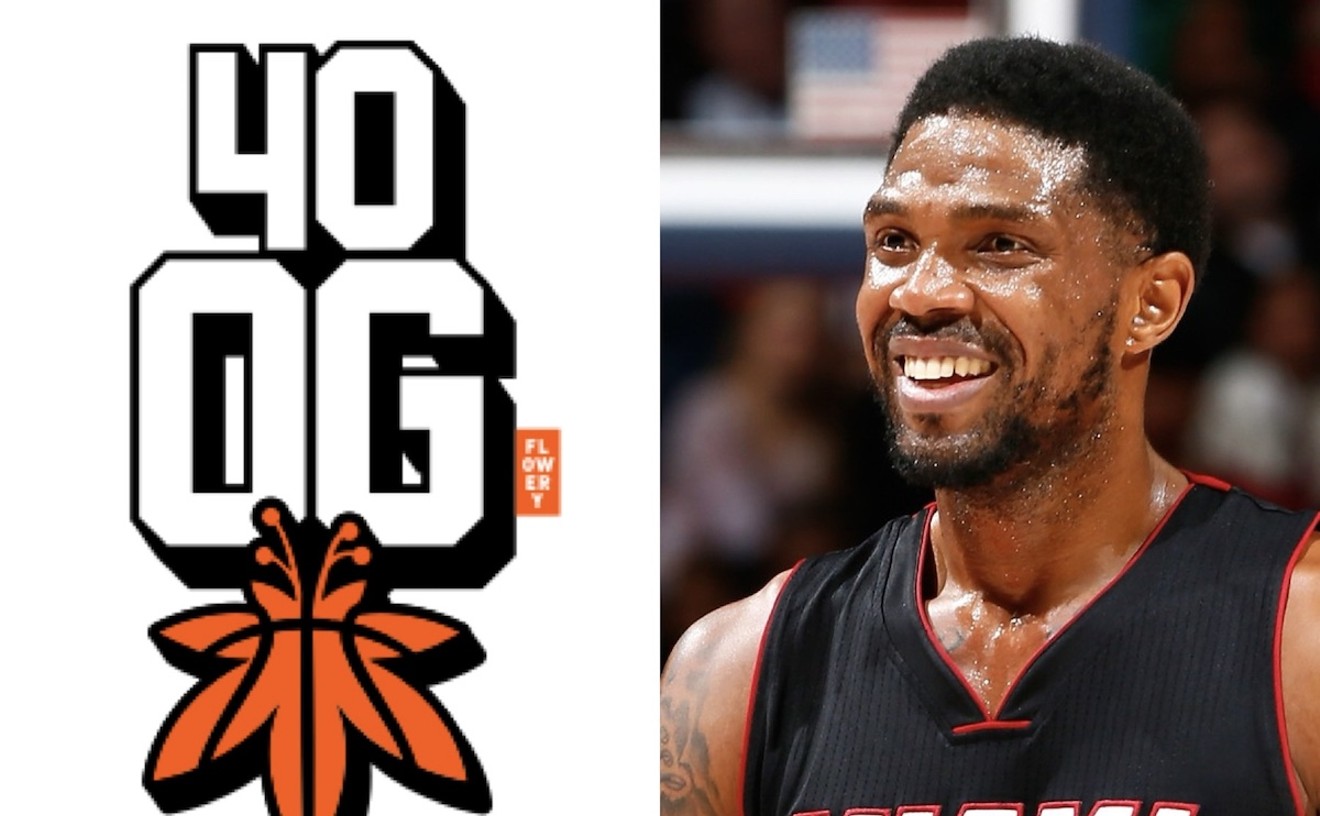At the beginning of Joss Whedon's long-awaited Marvel superhero supergroup flick, The Avengers, the Tesseract — a powerful, potentially dangerous glowing cube that fell to the ocean floor after Captain America (Chris Evans) liberated it from the Nazis in his movie last summer — is in the hands of NASA. The cube starts spewing gamma radiation, heralding the arrival of Loki (Tom Hiddleston) — brother of demigod Thor (Chris Hemsworth) and villain of 2011's Thor — who puts a spell on scientist Eric Selvig (Stellan Skarsgard) and S.H.I.E.L.D. agent Barton (Jeremy Renner) so that they'll do his bidding. The trio escapes with the Tesseract in hand, with eye-patched agent Nick Fury (Samuel L. Jackson) unable to stop them.
With the help of ass-kicking all-purpose Girl Friday Natasha Romanoff (Scarlett Johansson), Fury gathers a motley crew to help wrangle the Tesseract back. There's Tony Stark/Iron Man (Robert Downey Jr.), pulled away from Stark Tower, the gaudy monument to himself he has built to showcase a pioneering sustainable-energy source. Gamma-radiation expert Bruce Banner (Mark Ruffalo) is found in Southeast Asia, where he tends to the local sick and maintains an equilibrium that has prevented "the other guy" — the Hulk — from showing up for a year. Captain A., frozen in a block of ice for 70 years and thawed in the present day at the end of his movie, serves as the surrogate for the segment of the audience walking in cold and desperately needing to be debriefed on all of the above. Thor, initially unlocatable even by S.H.I.E.L.D.'s all-seeing surveillance, shows up looking for his brother.
"These people may be isolated, unbalanced, even," Fury concedes. They're also largely up their own asses, each of them lone warriors wary of giving up control. Once they're assembled at Fury's invisible-to-outsiders secret headquarters, Whedon uses the calm in between Loki-initiated storms to demonstrate ad nauseam that the Avengers just can't get along. As daring as it might seem for the biggest superhero movie ever to turn the action knob way down for an hour so that its actors can do some acting, the actual material they're given is as programmatic as a bad culture-clash rom-com, transparently meant to tear our heroes apart just so they can come back together. One scene, in which Thor, Iron Man, and Cap each whip out their superpowers to show the others whose is biggest, amounts to a CGI-enabled round of roshambo.
Writer/director Whedon first showed his incredible talent for long-form storytelling in TV's Buffy the Vampire Slayer, infusing the fantastic with slowly built, genuinely relatable emotion. On The Avengers' comparatively minute canvas of two and a half hours, Whedon effectively creates a sketch of a working universe and tells us that his characters are emotionally damaged but doesn't explore that damage in any substantive way. The most Whedon-esque parts of the script are the flippant wisecracks — self-satisfied, self-deprecating, or somehow both — that the fucked-up superheroes toss off as knee-jerk self-defense in life-or-death situations. What worked as the cool diffusion of stakes in Buffy here underlines the lack of suspense to the mission: We never get the sense that any of the heroes might not survive to snark again.
Maybe it's the shock of the new, but the most exciting actor here is Ruffalo, the third star cast as Banner/the Hulk in ten years, after Eric Bana and Edward Norton proved unprofitable. Ruffalo successfully refreshes the Hulk myth, playing Banner as an adorably bashful nerd-genius who, in contrast to the preening hunks on the team, knows better than to draw attention to himself. As a fellow top brainiac with dangerously repressed issues, Banner brings out a measure of complexity in Tony Stark that a tired-looking Downey — who was revelatory in the first Iron Man as someone forced to become part machine in order to realize his full human potential — can no longer muster on his own.
The four main male Avengers at least combine to form a varied gallery of masculine neuroses. The women fare less well, with Gwyneth Paltrow's Pepper Potts, who was briefly promoted to CEO of Stark Industries in Iron Man 2, given just one dialogue scene: Barefoot in cutoff shorts, she whispers implied sexual promises to Tony and then books it so he can get some work done. Johansson, reprising her role from Iron Man 2, is the only actress given any sort of inner life to work with. The Avengers hints that this former Russian spy with "a very specific skill set" has a complicated backstory — sordid and shameful, perhaps, but also rife with transformative drama, suggesting an arc that's much more interesting than anything the characters travel here.
The final act of The Avengers consists of an insanely complex action set piece, containing some truly cool visual shit, not least the alien army summoned by Loki, which arrives in some kind of undulating, indestructible, prehistoric flying fish. But really, who cares about another battle? We know how this is going to end. The long, technically bravura sequence is given dramatic tension only by occasional scraps of dialogue, such as a two-line exchange between Natasha and Barton over a job they worked in Budapest, alluding to the mysterious lives they'd all been leading before this movie. Then, a few minutes later, Iron Man breaks a moment of tension with a homophobic wisecrack. Every time the movie hints at something rich and evocative, Whedon undercuts it with a punch line — his instincts as a big-picture storyteller crippled by his short-term need to please the crowd.










